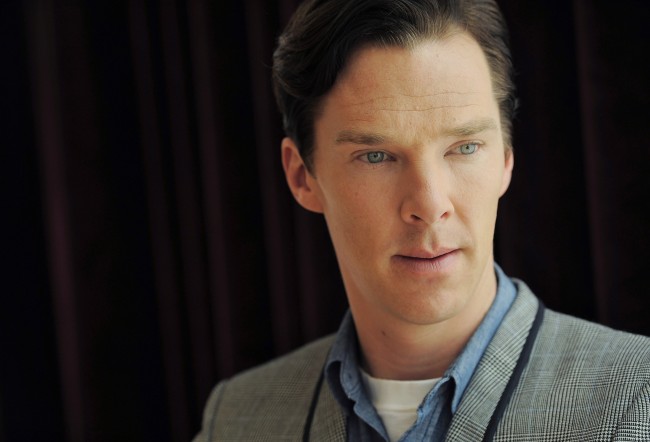Public School Never Made Me Gay: Benedict Cumberbatch And Those Curious Boys

Dermot Turing, nephew of Alan Turing inspects the Pilot ACE computer – formerly the fastest computer in the world in the 1950s and fundamentally designed by Alan Turing, at a preview of the Codebreaker: Alan Turing’s Life and Legacy exhibition at the Science Museum.
BENEDICT Cumberbatch is plugging his film The Imitation Game. He plays Alan Turing, the mathematician and computer scientist whose key work decrypting German codes in the second world war helped the British defeat the Nazis.
Turing died in 1954. He had been convicted of gross indecency for being gay. At the time homosexuality was illegal in the UK. He endured a chemical castration as an alternative to prison. His death was suicide, so they say.

Cumberbatch has been talking to Out magazine about his role and homosexuality. Thoughts turn to his schooling:
For Cumberbatch, boarding school was a wonderful place to grow up “because you have that complete experience of being a child,” he says. “You are not going to and from a place all the time, and I was very, very hungry for company. My mom and dad, poor them — I used to ask every Christmas and birthday for a brother or sister. That’s all I really wanted when I was growing up, because I was an only child.”
In the time-honored tradition of all-male schools he found himself playing female leads (like Titania in A Midsummer Night’s Dream and Rosalind in As You Like It) but claims to have been oblivious to the kind of sexual antics for which English boarding schools are supposedly notorious. “While there was experimentation [at Brambletye], it had never occurred to me as Oh, this is that. It was just boys and their penises, the same way with girls and vaginas and boobs. It wasn’t out of a desire.”
He is less charitable about the culture at Harrow, which he characterizes as having, at the time, “a really low tolerance for homosexuality,” a fact starkly illuminated when two boys were publicly outed at the dining hall one morning during breakfast. “They had been discovered in their house,” Cumberbatch says, “and in those days, if you were discovered with a girl you were expelled — there was no shame in that. But if you were discovered with another boy, you weren’t [expelled]. You had to survive all the horrendous prejudice you faced.”
Alva Alvarez recalled his school:
Sex was part of the culture of the school, but it was all pretty ingenuous. It wasn’t a culture of gang rape; it was boys getting crushes on other boys. It was like a ghastly parody of courtship, more to do with adolescent yearning than lust. Imagine it: 650 adolescents with nothing on their mind but sex who had to try to sublimate it all into playing rugger.
Peregrine Worsthorne, former editor, Sunday Telegraph:
I think rapes certainly wouldn’t have been called rapes. I have never been raped. There was a system of sexual favours [at Stowe], but they never happened with violence. A lot of buggery went on, and things in that area…
Derek Malcolm returns to the idea of one rule for them:
At Eton, if you were a fag master you chose the prettiest fag from among the lower boys. You just liked to have a pretty fag – I suppose it was a substitute for girls. The funny thing was, if you shagged one of the maids you were instantly expelled, but if you had anything to do with boys you got a severe ticking-off.
Francis Wheen:
The only thing I can remember from Harrow is a story about a veteran physics master who, according to legend, found a couple of boys doing something in his house, and said, “I don’t mind mutual masturbation, but I draw the line at buggery.”
Matthew Fort:
I was at Eton… Relationships were going on, but it was less the love that dare not speak its name than the fact that if you put 1,200 testosterone-fuelled boys in an enclosed space there is bound to be some cross-fertilisation.
Two scenes spring to mind:
Scum (it’s not public school – it’s men together):
And fast forward to 7mins 46s for a call in from the BBC’s Down The Line:
Alan Turing went to Sherborne School.
Posted: 15th, October 2014 | In: Celebrities, Reviews Comment | TrackBack | Permalink


